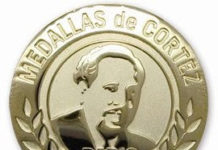“There’s nothing wrong with radio,” said CBS Radio CEO Dan Mason, as he and other group heads told their NAB Radio Show audience that radio still connects with audiences and is now able to deliver its unique content on multiple platforms. But, as Emmis CEO Jeff Smulyan noted, the problem is perception on the part of big advertisers. Entercom CEO David Field said the key is to reach key decision makers before radio is slashed by media planners – and he put the burden on himself and other top executives to deliver that message.
All of the group heads said their companies were embracing new technology to put their content on new platforms, but a lot of the discussion was about programming – developing the content that will draw people to those new offerings just as listeners have always been drawn to radio.
“Everybody is looking for their virtual friend. Radio has been doing that for a long time,” said Mary Quass, CEO of NRG Media. So, her company’s stations in small markets are intent on developing multi-platform distribution just like big market stations. She noted one case where a music-based station had developed a website focused on local news and information after the community’s newspaper went out of business.
Smulyan noted that he and some other major group heads are meeting with top executives of major wireless telecom companies to persuade them to put radio receiver chips into cell phones. His goal is to have a radio chip in every new cell phone in a few years and declared “we’re on our way.”
The group heads repeatedly noted that radio has retained its audience very well in the face of new media competition, but the problem is perception. “I know our advertisers don’t believe it. I’m not sure we believe it,” said Smulyan. Quass called this a “time of low self esteem for our business” and said radio broadcasters should really take a look at how their own business compares to what has happened to other media.
When an audience member complained that more bad spots are being heard on radio these days, Quass noted that her small market group has begun using talent from other markets within her company to help stations create better spots. The result has been a new level of respect from the sales side for the programming side – and, she noted, “the advertiser is the happy beneficiary of that.”
Photo credit: www.nabradioshow.com




